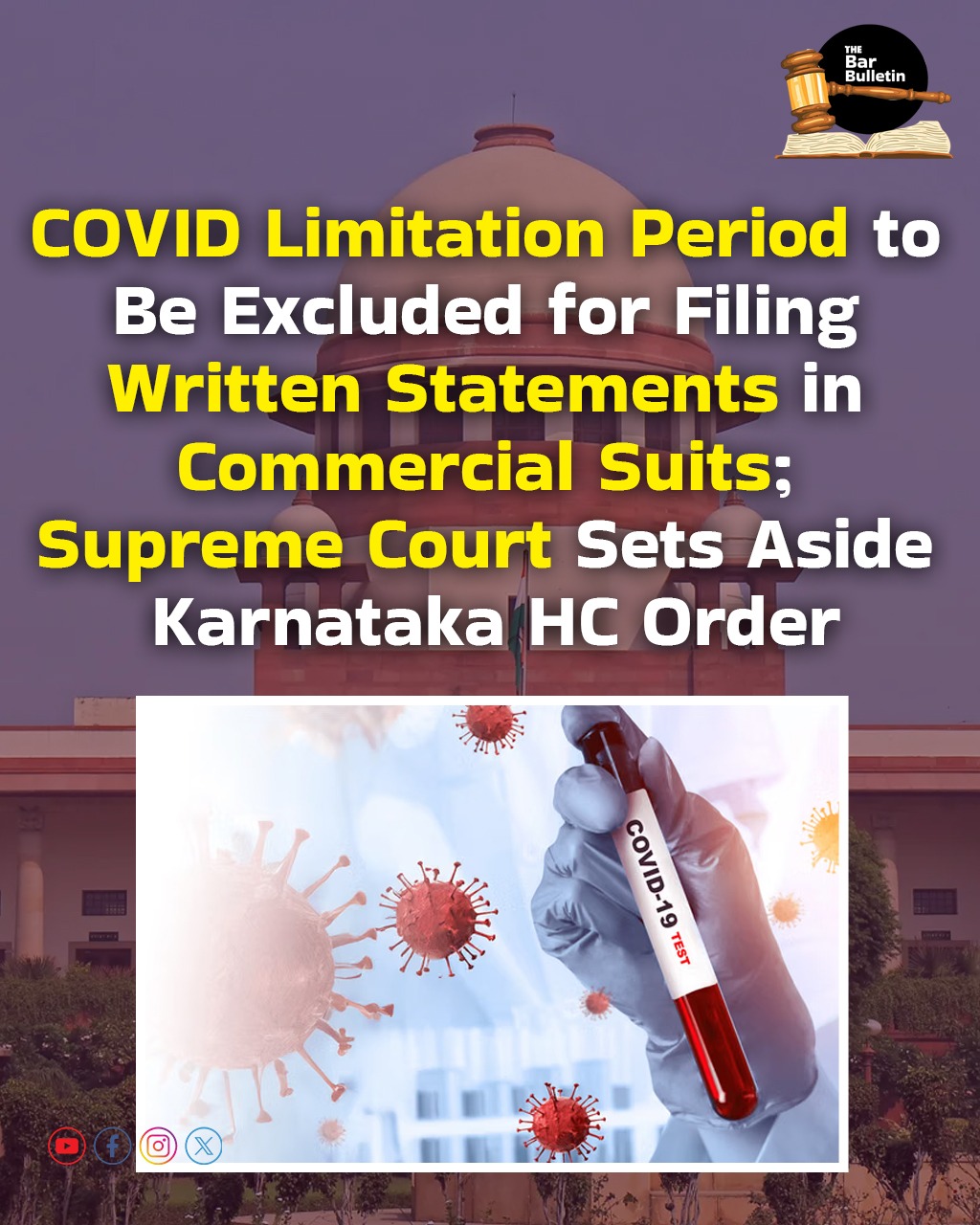The Supreme Court on October 6, 2025 has clarified that the suo motu extension of limitation granted during the COVID-19 pandemic applies equally to commercial suits governed by the Commercial Courts Act, 2015, and that written statements filed within the extended period cannot be rejected as time-barred. The Court emphasised that procedural law is intended to advance justice, not to defeat it, and set aside concurrent findings that had denied the defendant the right to defend, cross-examine witnesses, or lead evidence.
The appeal arose from a Karnataka High Court judgment that had upheld the Commercial Court’s decision refusing to accept the appellant’s written statement on the ground that it was filed beyond the statutory 120-day limit under Order VIII Rule 1 CPC read with Section 16 of the Commercial Courts Act, 2015. The trial court had further denied the appellant-defendant, the right to cross-examine witnesses and to lead evidence.
Consequently, appeal is filed before the Supreme Court, where the Hon’ble Court has framed following issue for consideration-
“Whether the High Court was correct in observing that on account of non-filing of written statement by the defendant, his right to cross-examination is taken away?”
Allowing the appeal, the Supreme Court held that the benefit of limitation exclusion during the COVID-19 period extends to all litigants across judicial and quasi-judicial forums, including commercial courts. The Bench observed that the commercial framework’s procedural discipline cannot be elevated above the right to a fair hearing, particularly in extraordinary circumstances.
The Court underscored that the 120-day timeline under the Commercial Courts Act is not immune from the exclusion principle recognised in In Re: Cognizance for Extension of Limitation, (2022) 3 SCC 117. Therefore, any written statement filed within that excluded period must be treated as valid.
Consequently, the Supreme Court set aside the orders of both the trial and the High Court, directed the Commercial Court to take the written statement on record, and restored the appellant’s right to cross-examine the plaintiff’s witnesses. The trial was ordered to be completed within six months, and costs of ₹1 lakh were imposed on the appellant.
Appearances
Shri Pb. Suresh, Learned Senior Counsel for Appellant
Shri Balaji Srinivasan, Learned Counsel for Respondent
Coram: Justice Aravind Kumar and Justice N.V. Anjaria

